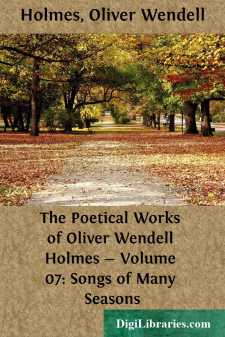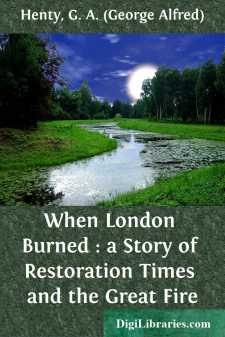Categories
- Antiques & Collectibles 13
- Architecture 36
- Art 48
- Bibles 22
- Biography & Autobiography 813
- Body, Mind & Spirit 142
- Business & Economics 28
- Children's Books 13
- Children's Fiction 10
- Computers 4
- Cooking 94
- Crafts & Hobbies 4
- Drama 346
- Education 46
- Family & Relationships 57
- Fiction 11828
- Games 19
- Gardening 17
- Health & Fitness 34
- History 1377
- House & Home 1
- Humor 147
- Juvenile Fiction 1873
- Juvenile Nonfiction 202
- Language Arts & Disciplines 88
- Law 16
- Literary Collections 686
- Literary Criticism 179
- Mathematics 13
- Medical 41
- Music 40
- Nature 179
- Non-Classifiable 1768
- Performing Arts 7
- Periodicals 1453
- Philosophy 64
- Photography 2
- Poetry 896
- Political Science 203
- Psychology 42
- Reference 154
- Religion 513
- Science 126
- Self-Help 84
- Social Science 81
- Sports & Recreation 34
- Study Aids 3
- Technology & Engineering 59
- Transportation 23
- Travel 463
- True Crime 29
Sort by:
Introductory Notice WHILE ENGAGED in writing an account of the grand enterprise of Astoria, it was my practice to seek all kinds of oral information connected with the subject. Nowhere did I pick up more interesting particulars than at the table of Mr. John Jacob Astor; who, being the patriarch of the fur trade in the United States, was accustomed to have at his board various persons of adventurous...
more...
by:
William Harvey
Preface. I have been called upon to write illustrative sketches to a series of engravings, designed by an eminent artist. In performing my part of the work I have thrown the Mammalia into twenty-four groups—corresponding more or less to the picture designs—and have dwelt chiefly on the geographical distribution of the animals. The Cetaceae and Vespertilionidae are properly omitted. In the groups...
more...
I. BEING A BOY One of the best things in the world to be is a boy; it requires no experience, though it needs some practice to be a good one. The disadvantage of the position is that it does not last long enough; it is soon over; just as you get used to being a boy, you have to be something else, with a good deal more work to do and not half so much fun. And yet every boy is anxious to be a man, and is...
more...
by:
Florence Warden
SOMETHING AMISS. Everybody knows Canterbury, with its Old-World charms and its ostentatious air of being content to be rather behind the times, of looking down upon the hurrying Americans who dash through its cathedral and take snap-shots at its slums, and at all those busy moderns who cannot afford to take life at its own jog-trot pace. But everybody does not know the charming old halls and...
more...
by:
Emma Helen Blair
Preface The events related in the present volume (1593–97) conclude the first quarter-century of the history of Manila as a Spanish settlement. That city, although small, is gaining in importance and prosperity; it is fairly well fortified, and its public institutions are increasing; it is now the seat of an archbishop, and three dioceses are formed to be under his care. Restless spirits among the...
more...
by:
Annie Van Sommer
INTRODUCTION This book with its sad, reiterated story of wrong and oppression is an indictment and an appeal. It is an indictment of the system which produces results so pitiful. It is an appeal to Christian womanhood to right these wrongs and enlighten this darkness by sacrifice and service. At the recent Mohammedan Educational Conference in Bombay the president of the gathering, the Agha Khan,...
more...
by:
Kuno Francke
THE LIFE OF JEAN PAUL By BENJAMIN W. WELLS, Ph.D. Author of Modern German Literature. "The Spring and I came into the world together," Jean Paul liked to tell his friends when in later days of comfort and fame he looked back on his early years. He was, in fact, born on the first day (March 21) and at almost the first hour of the Spring of 1763 at Wunsiedel in the Fichtelgebirge, the very heart...
more...
by:
Isaac Asimov
Red and Slim found the two strange little animals the morning after they heard the thunder sounds. They knew that they could never show their new pets to their parents. There was a spatter of pebbles against the window and the youngster stirred in his sleep. Another, and he was awake. He sat up stiffly in bed. Seconds passed while he interpreted his strange surroundings. He wasn't in his own home,...
more...
OPENING THE WINDOW THUS I lift the sash, so longShut against the flight of song;All too late for vain excuse,—Lo, my captive rhymes are loose. Rhymes that, flitting through my brain,Beat against my window-pane,Some with gayly colored wings,Some, alas! with venomed stings. Shall they bask in sunny rays?Shall they feed on sugared praise?Shall they stick with tangled feetOn the critic's poisoned...
more...
CHAPTER I FATHERLESS Lad stood looking out of the dormer window in a scantily furnished attic in the high-pitched roof of a house in Holborn, in September 1664. Numbers of persons were traversing the street below, many of them going out through the bars, fifty yards away, into the fields beyond, where some sports were being held that morning, while country people were coming in with their baskets from...
more...











